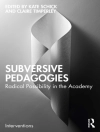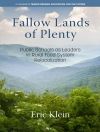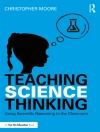′The contributions of Woodiwiss, Lister and Sassen are outstanding but not unrepresentative of the many merits of this excellent collection′ – The British Journal of Sociology
From women′s rights, civil rights, and sexual rights for gays and lesbians to disability rights and language rights, we have experienced in the past few decades a major trend in Western nation-states towards new claims for inclusion. This trend has echoed around the world: from the Zapatistas to Chechen and Kurdish nationalists, social and political movements are framing their struggles in the languages of rights and recognition, and hence, of citizenship.
Citizenship has thus become an increasingly important axis in the social sciences. Social scientists have been rethinking the role of political agent or subject. Not only are the rights and obligations of citizens being redefined, but also what it means to be a citizen has become an issue of central concern.
As the process of globalization produces multiple diasporas, we can expect increasingly complex relationships between homeland and host societies that will make the traditional idea of national citizenship problematic. As societies are forced to manage cultural difference and associated tensions and conflict, there will be changes in the processes by which states allocate citizenship and a differentiation of the category of citizen.
This book constitutes the most authoritative and comprehensive guide to the terrain. Drawing on a wealth of interdisciplinary knowledge, and including some of the leading commentators of the day, it is an essential guide to understanding modern citizenship.
About the editors :
Engin F Isin is Associate Professor of Social Science at York University. His recent works include Being Political: Genealogies of Citizenship (Minnesota, 2002) and, with P K Wood, Citizenship and Identity (Sage, 1999). He is the Managing Editor of Citizenship Studies.
Bryan S Turner is Professor of Sociology at the University of Cambridge. He has written widely on the sociology of citizenship in Citizenship and Capitalism (Unwin Hyman, 1986) and Citizenship and Social Theory (Sage, 1993). He is also the author of The Body and Society (Sage, 1996) and Classical Sociology (Sage, 1999), and has been editor of Citizenship Studies since 1997.
Jadual kandungan
Citizenship Studies – Engin F Isin and Bryan S Turner
An Introduction
PART ONE: FOUNDATIONS
Political Citizenship – Thomas Janoski and Brian Gran
Foundations of Rights
Economic Citizenship – Anthony Woodiwiss
Variations and the Threat of Globalization
Social Citizenship – Maurice Roche
Grounds of Social Change
PART TWO: HISTORIES
Ancient Citizenship and its Inheritors – David Burchell
Modern Citizenship – Rogers M Smith
Citizenship after Orientalism – Engin F Isin
PART THREE: APPROACHES
Liberal Citizenship – Peter H Schuck
Republican Citizenship – Richard Dagger
Communitarianism and Citizenship – Gerard Delanty
Radical Democratic Citizenship – Claire Rasmussen and Michael Brown
Amidst Political Theory and Geography
PART FOUR: FORMS
Sexual Citizenship – Ruth Lister
Citizenship and Indian Peoples – Alan C Cairns
The Ambiguous Legacy of Internal Colonialism
Cultural Citizenship – Toby Miller
Multicultural Citizenship – Christian Joppke
Religion and Politics – Bryan S Turner
The Elementary Forms of Citizenship
Towards Post-National and Denationalized Citizenship – Saskia Sassen
Ecological Citizenship – Deane Curtin
City, Democracy and Citizenship – Engin F Isin
Historical Images, Contemporary Practices
Cosmopolitan Citizenship – Andrew Linklater
Mengenai Pengarang
Bryan S. Turner is Professor of Sociology in the Asian Research Institute (ARI) at the National University of Singapore. Previously he was Professor of Sociology in the Faculty of Social and Political Sciences at the University of Cambridge from 1998-2005. His research interests include globalization and religion, concentrating on such issues as religious conflict and the modern state, religious authority and electronic information, religious, consumerism and youth cultures, human rights and religion, the human body, medical change, and religious cosmologies. He is Joint Chief Editor of the journal Citizenship Studies and serves on the editorial boards of several prestigious journals.












